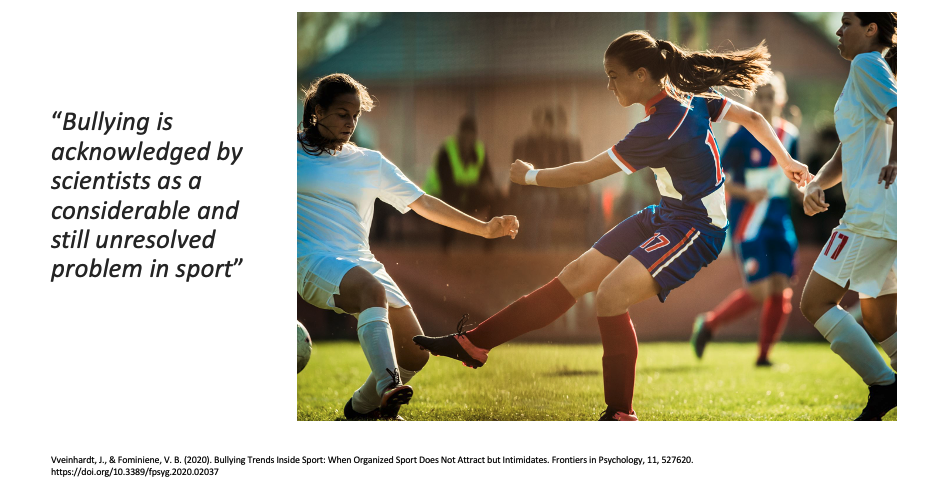Why is this project needed?
Low physical activity participation across Europe: There is a considerable need to address the interaction between body image and physical activity. From available data from Germany, Lithuania and Sweden for 15-year-olds that engage in moderate to vigorous physical activity range between for females 9 – 12%, males 15 – 23%. Physical activity declines, particularly for girls, with new research indicating the major barriers to engagement as feeling judged (61%), lack of self-belief (50%), and not feeling safe exercising outside (38%).
High rates of body dissatisfaction that leads to physical and mental health problems, exacerbated by the Covid-19 pandemic: The data also shows the proportion of young people who think they are too fat; females 40 – 47%, males 18 - 29%, which indicates a possible negative body image. It is established that negative body image is associated with lower physical activity and sport participation, and this is especially manifested for individuals that experience social inequality (2). Furthermore, A recent survey found that 70% of under 18 years olds said they hadn’t learned about positive body image at school and 78% said they would like to learn more about body image in school (3). The Covid-19 pandemic has resulted in increased body image concerns, and a spike in eating disorder referrals to treatment hospitals across the Western world, as young people struggle to cope with the uncertainty that the pandemic has brought to their future (4).
Health and sport professionals need for training in the creation of physical activity environments that are welcoming, and inclusive of diversity: People who study or work in health and sport have been found to have high levels of personal vulnerability to body image concerns, eating and exercise disorders, as well as high levels of weight stigma towards people in larger bodies (5). This creates environments that are not welcoming for people whose bodies and identities sit out of the mainstream norms. University curricula often focus on sciences and pedagogy, but not the psychology of movement and sport promotion, which prevents graduates from gaining a nuanced understanding of how they can be more inclusive of diversity.
1. Reframing Sport for Teenage Girls: Tackling Teenage Disengagement. Sport England
2. HBSC-study, 2017-2018 (http://www.hbsc.org/index.aspx)
3. https://houseofcommons.shorthandstories.com/women-and-equalities-body-imagesurvey/
index.html.
4. Zipfel, S., et al (2022). The hidden burden of eating disorders during the COVID-19 pandemic. The
Lancet Psychiatry, 9(1), 9-11.
5. Yager, et al., (2020). Pre-service teachers’ gendered attitudes towards role modelling in
health and physical education. Physical Education and Sport Pedagogy, 25(1), 67-78.
Social dialog
The project will promote social dialogue and reduce discrimination by highlighting and challenging myths and negative attitudes towards individuals who are less inclined to participate in physical activities and sports due to the judgment they feel about their appearance. Misconceptions and/or lack of knowledge in this area are widespread in society and lead to discrimination. The project will address these beliefs and provide the necessary knowledge. This project takes a systemic approach to provide uniform information both to pre-professional students at the university and to current professionals in the field, to quickly promote understanding of this issue and integrate broad measures across various settings, areas, institutions, and countries. Current professionals who are the target audience for the micro-credentials (teachers, healthcare professionals, sports teachers, qualified sports coaches, public health, and health promotion professionals) will therefore have access to training through colleges that will have a direct impact on their competence and thus better conditions to benefit from the new knowledge that pre-professional students bring with them when they enter the workforce, reinforcing the impact of all curricula developed within this project. Additionally, current professionals will be able to implement their new knowledge, skills, and understanding immediately towards the European public when they complete their education.
This issue encompasses many different areas. Body image is known to affect physical and mental health, but also academic engagement and participation in physical activity (1-3). All professionals in education, training, youth, and sports who work with young people in ways that aim to increase their engagement in physical activity therefore need to have a better understanding of body image and body dissatisfaction as key barriers to engagement and key opportunities to engage less active groups. We have chosen a systematic method that will ensure that professionals across different areas, disciplines, and countries have a common understanding of the issue and how they can contribute, creating a much stronger impact than if one only focused on college students or just one field. Currently, there are no resources like this that achieve these goals used in Europe.
1. Bornioli, A.,et al., (2021). Body dissatisfaction predicts the onset of depression among adolescent females and males: a prospective study. J Epidemiol Community Health, 75(4), 343-348.
2. Guimond, F. A., & Laursen, B. (2022). Low Body Image Satisfaction Predicts Declining Academic Engagement in Primary School Children. School Mental Health, 1-11.
3. Sabiston, C. M., et al., (2019). Body image, physical activity, and sport: A scoping review. Psychology of Sport and Exercise, 42, 48-57.



